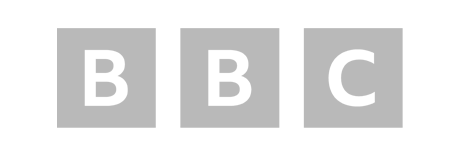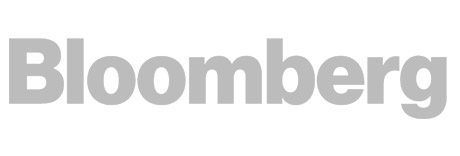I’ve received more success stories in my inbox from writing about a website called Viral Nova than any other.
I actually wrote about how to take advantage of that gap in the market three times.
I’ve never wrote about a single other idea three times, until now.
This is my third time, in around six years, of sharing the same concept. That’s how strongly I believe in it.
What blows my mind is how few people seem to want to take action on it: I genuinely believe this article could be the foundation for starting a 7-figure blog within 12 months of getting started.
I’m a logical person, and there’s just too much logic to think any other way.
The Question I Expect (Hope?) You Can’t Answer
I’m about to ask you a question I expect you can’t answer, but let’s start with one you probably can.
Could you name, off the top of your head, at least one SEO expert, Google Ads expert or Facebook Ads expert?
I can think of a lot for SEO, a couple for Google and a few for Facebook.
What about you?
Now here’s the question that forms the basis of this article.
Can you name, off the top of your head, at least one Quora ads expert, Pinterest ads expert, or Twitter Ads expert?
I suspect you’re going to find that one a little more tricky.
That’s to be expected, since their platforms are a little smaller, but to me that’s still kind of mindblowing.
I mean, we’re both in the business of internet marketing and we at least spend time in Facebook Groups on the topic or you wouldn’t be here.
More than $500M will be spent on Pinterest ads this year, but we can’t name anyone who is crushing it with them?
Over $2B was spent on LinkedIn ads in 2018.
Can you name a single person who is just loving life due to the conversions they’re getting from the platform?
There are a few people in our Facebook Group who surround themselves with ad buyers all day every day who I suspect found these questions easy, but for the rest of us (myself included) I think not knowing is a little crazy.
The Logic That Absolutely Seals This Opportunity for Me
The social networks that we’re apart of, and many of those we’re not apart of, more than likely generate the majority of their revenue from advertising.
Not only on the sites I mentioned above, but that also applies to Quora.
And Reddit.
And Snapchat.
Instagram, too.
And of course, people aren’t buying ads on LinkedIn just because they’re fans of its owner, Microsoft. They expect – for the most part – to get a positive return on their ad spend.
They’re spending money to make money.
(There’s an argument about ‘branding’ and ‘exposure’ I know you could counteract me with here, but let’s agree there are advertisers on each platform who want a measurable, quick, ROI).
As an example, DuckDuckGo founder Gabriel Weinberg is likely spending millions to advertise his privacy-focused search engine via Quora ads. His reach there is insane.

That’s an average of 5 million people per day seeing his ads.
He’s not doing it to support Quora. He wants more people to use his search engine (which also makes money from ads).
So let’s get this logic underway so we can get into some success stories.
For the third time in my online history, I’m once again about to promote the idea that there’s a lot of money to be made in becoming the guru for a specific ad platform.
In becoming the person that figures things out for everyone else.
If you can convince advertisers you can help them get a better return from the money they’re spending, it’s a no brainer on their part to pay you for advice.
What’s $1,000 on a training program when they’re already spending $5,000 per week on ads?
I’m a member of a few Google Ads groups on Facebook and people talk about $5,000 daily budgets like they’re nothing.
The $2.47BN+ that Snapchat advertisers spent on the platform in 2020 (up from $1BN in 2018) includes a lot of huge name brands that you likely can’t get in front of, sure.
But there’s a lot of individuals making up those numbers, and buyers at agencies who are always looking to improve their skillset.
Three Success Stories: Of Which There are Hundreds More
I don’t like to share ideas without showing people who have had success with similar offerings already.
With that in mind, here are three very different approaches (a big launch, recurring memberships and software) that have been successful for other companies.
Dark Post Profits and the $800,000 Launch Month
The nice thing about having written about an idea multiple times is that sometimes the people mentioned in your writing reach out to you.
That’s what happened when I first estimated the revenues internet marketer Chris Record had made from his Facebook ads course, ‘Dark Post Profits’.

Chris actually reached out to me in private to share some numbers I could add to my advice.
Here’s what he had to say:
If you are just looking for stats on the products, I can give those to you quickly to start things off.
Dark Post Profits 1.0 launched in April of 2014.
There are over 5,500 members, who paid $100 for the course.
The course generated over $500k in revenue in it’s first year, however there were expenses such as running some FB ad campaigns to promote it, as well as paying some affiliates to promote it, so it wasn’t all profit, but it did quite well.
Dark Post Profits 2.0 launched in March of 2015.
There are over 2,500 members, who paid an average of $300 for the course.
The course generated over $800k in revenue in it’s first month, and just like 1.0 there were similar expenses such as running FB ad campaigns and paying affiliates commissions when they promoted it to their lists, but it was still very profitable and members are loving it.
Sales will continue to roll in over the course of the year potentially up to another $1,000,000+ in sales on top of the $800k that came in from the 5 day launch week promotion. Chris Record
As far as I know Chris has never talked about these numbers publicly – at least not to these specifics – so that data is pretty cool.
Granted, the numbers are a little old, but Facebook advertising wasn’t as big then as it is now.
Chris is already on version 3 of his program, which launched in 2016.
Other platforms, like Quora and Pinterest, likely have more advertisers on them now then Facebook had then, yet Chris was still able to do some incredible numbers.
I should add that products in this industry do have the potential to involve launch tactics that might be a bit “hypey” and “make money online-y”.
That’s not the path I would recommend for you – because you certainly don’t have to take it – but thought I should point that out.
Jon Loomer Has Been Active for 10-Years for a Reason
Over the years, Jon Loomer has successfully branded himself as one of the top Facebook advertising experts in the world.
I don’t mean to disrespect Jon in any way, but there are thousands upon thousands of people in the US alone spending far more money on the platform than he does.
Jon smartly learned Facebook ads and everything about their platform, then shared what he learned with others, without needing to be one of their biggest spenders.
His personal story is a few years old now, but he was open about spending $10,000 per month on promoting his business, and that’s all from the revenue it generates.

With the number of products Jon has available on his site and the audience he’s built up in the space of Facebook advertising, I can comfortably predict he has made well in excess of $1M from his programs.
Just look at how wide this screenshot had to be to fit in all of the products he has on offer:

The one he seems to most prone to promoting is his ‘Power Hitters Club’ which comes with a monthly price tag of $147 (it’s cheaper if you buy a few months in advance).
The program has two tiers and two members-only Facebook groups. Here’s how many people are signed up to those:

If we account for Jon forgetting to remove some members after they cancel and not everyone paying $147/m, we can still estimate some incredible numbers.
If I completely ignore the revenues for the basic group and just assume his entire revenue is from 430 people paying $147/m, that’s still $63,210/m in recurring revenue.
And that’s just for one of his products.
I’ve never purchased anything from Jon but I’m a big fan of how consistent he has been over the years in terms of staying on top of what Facebook are up to.
It has been incredibly smart for him to brand himself as an advertising expert for a platform with literally millions of advertisers.
AdEspresso Reached $400K MRR Before Being Acquired by HootSuite
Though we have some 2016 revenue numbers for AdEspresso – they hit $400K MRR from 4,000 customers – that’s not why I’m sharing them.
Their software platform helps Facebook and Instagram advertisers get more bang for their buck. They were so successful in that endevaour that they were acquired by HootSuite in February of 2017.
(According to Reuters, Hootsuite brought in $150M in 2017).
The reason I wanted to introduce you to AdEspresso is because of how smart they were in growing their reach in the first place.
Their blog, which they refer to as their ‘Academy’, is an absolute goldmine for Facebook advertisers.
They’re constantly running tests and sharing the results with their audience:

If you’re spending money or about to spend money on Facebook CBO (Campaign Budget Optimisation), who isn’t going to click on a headline like that?
I can guarantee AdEspresso got more than the $1,000 they spent on creating it back in value.
And of course, they got to spend that $1,000 on promoting themselves.
If you’re seriously considering tackling this angle yourself, I would really dive into their blog and see what kind of content they’ve shared over the years.
To say it’s a great resource to model is a massive understatement.
How I Would Get to 7-Figures with a Pinterest/Twitter/Quora/Snapchat/Instagram-Focused Advertising Blog
The big seven that I would considering focusing on if you’re going to do this are:
- Quora
- Snapchat
I can’t recall a single, notable example of people dedicating blogs to these advertising platforms and doing it well.
As an aside, I know there are big social networks in other countries that people use such as QQ in China and Badoo for Latin audiences. If there are other opportunities you see for this to do well in your own country or language, of course, feel free to do so.
In fact, I highly recommend it as it will be easier to position yourself as an expert.
If one network or angle (media buying on blogs, for example) comes to mind and you’re ready to roll with this, here would be my plan of attack…
You Must Spend Money on That Ad Platform
If you’re going to be perceived as an expert in any correct interpretation of the word then you cannot base your advice and recommendations on second-hand sources.
While there things other people have uncovered on a particular platform you’ll find useful, you have to be testing things for yourself.
As an example, you’re going to look really stupid if you start a blog about Twitter advertising and tell people to sign-up for an Ad account and assure them they can have their first ad running in minutes.
(You need to have an active non-advertiser account for a while before being approved as an advertiser.)
This doesn’t mean you need to spend tens of thousands of dollars before you have anything interesting to share though.
I learned a ton about Twitter’s ad platform just by running lots of little $10/day campaigns and trying to break things as I went.
Things I’ve never found anyone else talking about, and I’m no ad buying expert.
You don’t have to spend tens of thousands, but you do have to be obsessed about figuring out every single detail of that platform. Details that others don’t have the time (or interest) to figure out for themselves.
You Must Give Away the Majority of Your Findings for Free
While the goal here is of course to build a website that makes money, you aren’t going to generate sales without first building a reputation as an expert in your field.
The best way to do that is to give away most of your best information for free.
I like to think that this manifesto is a good example of an information product that I could charge for.
Yet, here I am, sitting alone and working on a report I won’t earn a penny from.
My main focus is just to give readers (that’s you) as much value as possible.
There’s a great quote by Zig Ziglar which goes well with my message here, “You can have everything in life you want, if you will just help enough other people get what they want.”
Help people learn the ropes of a network and give them advice you worked hard to discover, for free.
When you help enough people with your value, you’ll start seeing that value being returned.
You Must Have a Design that Says “I’m the Person You’re Looking For”
It might not be incredibly obvious in the sites you know me for but I really care about website design.
The font you see on this page is the same one I saw on Wired.com and fell in love with, so I bought it myself.
Yes, I actually bought a font when there are thousands out there available for free.
The recommended posts you see on the bottom of every Gaps blog post, with our newsletter perfectly slotted in, wasn’t created by a plugin.

I spent an entire day trying to get it perfect just for this website (note: This was before our 2021 redesign).
I think you’re going to have to take the same attention to detail.
I know there have been studies by various internet marketers saying “ugly websites work” or “ugly websites will get people to click on more ads” and so on. I don’t care. I’m not wrong here: Ignore them.
If you want to build a personal brand as a guru for a specific ad platform, please make sure elements of your design are relevant to the platform you’re talking about.
I don’t want you to mimic Quora, but include subtle hints that suggest you care so much about the appearance of your site that you must care about the content to a similar level.
I’m not saying you have to win design awards; I’m just saying you shouldn’t have a run-of-the-mill theme that millions of other bloggers can download on a whim. Start with a basic framework then make some tweaks to suit the platform you’re blogging about.
AdEspresso do a great job with this.
You Must Get Content for Every Angle in That Industry
With such a narrow focus here, you aren’t likely to have thousands of people coming to your site daily, having tens of thousands of subscribers or building up a 6-figure following on Instagram.
Instead, your aim should be for when people decide they are going to start advertising on a certain platform – like LinkedIn or Twitter – to have your name pop-up first in their mind.
And when they’re spending hundreds or thousands of dollars per day and want to improve their results, your products, services and coaching should be where they’re spending money for further education.
To get to that point, you must be constantly looking for sources of news and inspiration to cover that specific ad platform. That could be things like:
- Changes to the ad platform announced on an official blog
- Trends you’ve noticed from running ads
- Tips and tricks you’ve noticed from running ads
- Opinions of others on that network that you agree or disagree with
- Valuable content that other people are sharing about that ad platform
And so on and so on.
Basically, you need to be seen as being part of the “pulse” of news around that network. Follow Jon Loomer on on Facebook for a great example of this in action.
He has been running that page for eight years (!) and still posts multiple Facebook-related updates each month.
You Should Reach out to Influencers to Help Them for Free
As you know, a website will never make you a penny if you can’t get people to visit it.
While I do think there’s a lot in this idea that will help the marketing itself (e.g. being one of the first to cover Quora advertising in detail), it never hurts to have a lot of marketing angles.
What I would do once you’ve decided on your specific platform is give advice to some present advertisers (who are hopefully already influencers) for free.
Let’s say I’m focusing on Reddit.
I would find some people advertising on Reddit in the marketing and advertising categories who might benefit from changing a few words in their copy.
I would head on over to their site and email them directly with some feedback – asking for nothing in return – or send them a private message on Reddit itself.
Trust me, if your advice is good, you’ll get the value you’ve given back tenfold. Whether that’s in a blog post mention or when someone emails them for advice on that platform and they recommend you, it will happen.
Plus, it might help you get a few more case studies under your belt.
Bring This Back to Ranking First: Building Search Rankings In
If I woke up tomorrow with zero credibility and no websites to my name, this is one of the first models I would try.
If I wasn’t so focused on building my SEO business, I would go all in on an ad network and then try to help others with everything I learn.
There are people who describe themselves as Pinterest marketing experts but nobody that you or I can name.
LinkedIn Ads have been so expensive for most people from their first campaign that they generally just give up on the platform and look elsewhere to spend their hard-earned money.
That has to be a mistake. Someone has figured it out. People are not spending money on LinkedIn for the sake of it.
While working smart can get better results than someone working hard, just putting in the hours here is enough to get you to the position you want to be in.
As far as monetisation goes, I believe all of the best angles have been covered already in this article: Charge for coaching, membership sites, information products or even hire a programmer to make custom software that advertisers on that platform would pay to use.
My own approach would be something like:
- Provide huge value in public blog posts
- Give away an exclusive freebie – e.g. “12 Instagram Ad Tricks you Aren’t Using” – only for email subscribers
- Provide email subscribers with more exclusive content they won’t find on the site
- Launch an expensive training course at a minimum $497 price point (preferably $997)
Of course, only once you’re at the stage of having true value to share.
While you could launch something with a much lower price point, you’re typically looking to attract people who are at a minimum spending $1,000 per month on a specific network (it’s not huge, just $33/day) who understand the value of your hard work in figuring out that platform.
Those people are going to be more than willing to pay a % of their monthly ad spend for education which may lower it in future.
When it comes to picking up search traffic, which certainly doesn’t have to be the only marketing channel you focus on – and honestly, doesn’t have to be a marketing channel you focus on at all – I would keep the longtail in mind.
The queries that aren’t searched for very often but are very specific to people clearly already spending money on a platform.
According to Ahrefs, Quora is the 26th most visited website in the world when it comes to search engine traffic from Google.
Hundreds of millions of people land on their website every single month.
Can you guess how much advertising revenue they generated in the 2018?
$100M? $500M? $2BN like LinkedIn?
Twenty million dollars. They’re a tiny fish in the advertising sense at the moment.
Their platform is so new that people are just getting started there, so being able to establish yourself as the Quora ads expert could be pretty special.
If you don’t have access to a premium keyword research tool like Ahrefs, SEMRush or Moz, one tip is to use Quora and see what kind of questions people are asking there about different ad platforms.
They can then form the basis of future articles you would write.
So the following question…

…can result in an article on “These Are the 25 Best Pinterest Ads I’ve Seen”.
And if you do have access to a premium SEO tool, then the keywords to target take care of themselves.
Here’s an example from Ahrefs:

Once you decide on the platform you’re going to teach and learn it inside out (if you haven’t already), you’re going to find different aspects to talk about.
For instance, the different targeting options that Twitter allows you to choose from, and their unique angle of allowing you to run ads to your own followers, or the followers of any other Twitter account.
The reality is that there will be very few people searching for those specifics about a platform each month, but those very few people are still the exact type of people you’re going to want to reach.
The Obvious Flaw in My Argument
My ideas are never going to be perfect. There will be things to critique about each one.
I think the obvious ‘flaw’ in my argument here is that there are already people doing exactly what I’m talking about.
Of course there’s a Pinterest ads expert.
Of course there are people teaching Reddit advertising tactics.
I would be stupid to suggest otherwise.
The point I’m trying to make is that you more than likely can’t name any, because I certainly can’t.
They haven’t passed over into the mainstream SEO, content marketing and Facebook circles with a compelling enough message that makes you want to go and check out those specific platforms.
Nobody has established themselves as an expert in front of enough people, and that’s where I think the opportunity here truly lies.
Not only in serving the people who are clearly already spending money on a platform, but getting new people involved in a platform if you truly see an opportunity for them to make money in doing so.
For that alone, I think the opportunity here is incredible.
I really hope someone reading this agrees.









 For over a decade we've been sharing some of the best niche ideas on the web.
For over a decade we've been sharing some of the best niche ideas on the web.